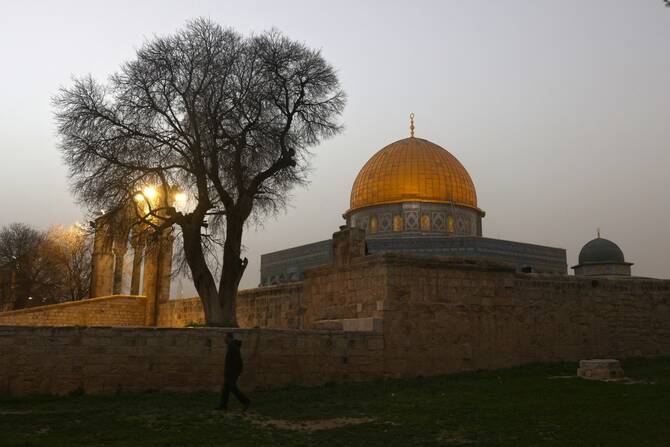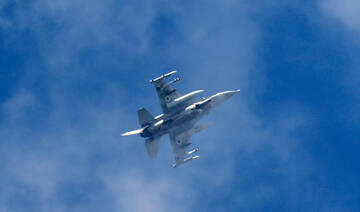TUNIS: Tunisia has long been seen as a pioneer for women’s rights in the Arab world, but on the eve of presidential elections, women are calling this reputation into question.
“Men promise a lot to women. But when Mr. Moustache arrives in power, nothing happens,” said Feryel Charfeddine, head of Calam, an association fighting violence against women.
Whether they be passionate activists, laywomen or former elected officials, many women say they do not expect “much” from the polls that start with the first voting round on September 15.
“I’m not a pessimist, I’m a realist,” said Charfeddine, who is alarmed by what she sees every day on the ground: increased violence, diminished rights and social conservatism.
“Women aren’t interested in politics anymore. Unconsciously, they know that it’s the same patriarchal system that endures,” she said.
Women played a prominent role in the protests that toppled longstanding dictator Zine El Abidine Ben Ali in 2011 and they were a courted group in previous post-revolution elections.
But they have been largely absent from the 2019 presidential campaign, which has focused heavily on security and economic issues.
Nor are they well represented in the large pool of presidential hopefuls, with just two women standing out of 26 candidates.
One is staunch anti-Islamist Abir Moussi, the other a former minister, Salma Elloumi.
“They’re part of the alibi,” said lawyer Bochra BelHajj Hmida, who was elected to parliament in 2014 but is stepping back from politics.
“I had a very, very rich experience, but I’m leaving politics without regret,” she told AFP.
While in office, Hmida helped spearhead an inheritance equality law, facing fierce backlash from some sides for her position on the hotly debated issue.
“Men expect women in politics to be the least disruptive as possible, that they don’t debate and especially that they don’t make decisions. I lost a lot of male friendships,” she said.
She noted as well a lack of female solidarity, saying it’s “as if there was only one spot to win and you have to fight each other for it.”
The sometimes taxing environment can dissuade engagement.
“Women don’t feel supported and there is no willingness of political parties to change that,” said Zyna Mejri, a young activist.
Tunisia has been considered relatively progressive on women’s rights in the Arab and Muslim world since its independence in the 1950s, adopting in 1956 a Personal Status Code that abolished polygamy and changed divorce law.
Beji Caid Essebsi, Tunisia’s first president elected democratically by a nationwide vote in 2014, boasted of having been carried to power by the female electorate.
He oversaw the passing of several key texts, including a law on violence against women and the repeal of a circular banning women from marrying non-Muslims.
“It’s true that we’re way better off, but we still have a lot to do,” Mejri said.
“We can have every day a new great law about equality, but the problem is the enforcement of that law,” she added, noting that “it’s also about changing the mind of Tunisian society.”
“Schizophrenia,” Charfeddine calls it, pointing to the gap between the country’s progressive image of the society’s strong conservatism.
Hmida often collided with the aggression of young men that did not understand her fight for equality.
But she remains convinced of the need for debate and says she has at times shifted her point of view.
“When I managed to establish a dialogue with some of these young people, it also opened my eyes... I became aware of their frustration, of the way they think the ‘bourgeois’ look at them,” she said.
The question of whether Tunisian society is “ready” for more equality infuriates Yosra Frawes, head of the Tunisian Association of Democratic Women (AFTD).
“It’s not even a question, equality is a universal principle,” she said, noting however that she sees “an enormous setback” for women’s rights in the country.
She cites growing difficulties regarding sexual and reproductive rights, less access to health care — particularly in rural areas — and the impoverishment of women.
According to a recent AFTD study, women make up more than 80 percent of Tunisia’s agricultural workforce, a sector the association denounced as precarious and “exploitative.”
Tunisian women absent from presidential campaign
Tunisian women absent from presidential campaign

- Tunisia has been considered relatively progressive on women’s rights in the Arab and Muslim world since its independence in the 1950s
Israel detains Al-Aqsa imam as PA warns of escalation during Ramadan

- Israeli authorities have prohibited 250 people from entering Al-Aqsa Mosque since January
- Knesset member Amit Halevi called for Jewish prayers at the site during Ramadan
LONDON: Israeli authorities detained Sheikh Mohammad Al-Abbasi, the imam of Al-Aqsa Mosque, from within the mosque’s courtyards as 222 settlers stormed the site on Monday.
The Palestinian Authority warned of an Israeli escalation at the Al-Aqsa compound in the walled city of occupied East Jerusalem, ahead of and during the fasting month of Ramadan, which starts this week.
The Jerusalem Governorate reported that Israeli authorities have prohibited 250 people from entering Al-Aqsa Mosque since January. This week, they prevented the Jerusalem Endowments Council from preparing for Ramadan by blocking the installation of umbrellas for sun and rain protection, and the setup of temporary clinics, according to Wafa news agency.
The governorate also condemned the visit of Israeli Knesset member Amit Halevi to Al-Aqsa Mosque on Sunday, accompanied by Israeli police. It said that Halevi’s incursion was part of a provocative tour with the “Temple Mount Administration,” amid rising Israeli calls to change the reality at Al-Aqsa Mosque and alter the historic status quo.
Halevi advocated continuing what he described as “Jewish prayers” at the site during the month of Ramadan, Wafa added.
The governorate also reported that Israeli forces issued a six-month ban on freed prisoner and Al-Aqsa Mosque guard Fadi Alyan from entering the mosque.














